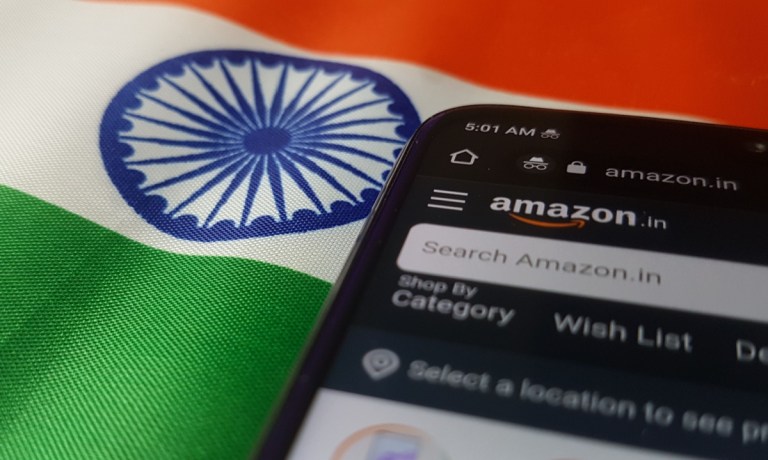
Amazon is working on a new eCommerce site to reach Indian shoppers, dubbing it a “special store.”
The eCommerce giant said it would not levy any “extra charges” to sellers on the fashion and lifestyle products platform, called Bazaar, according to a Wednesday (Feb. 21) TechCrunch report, which cited documents Amazon had sent to its partners.
Items sold on Bazaar would be under 600 Indian rupees ($7.23) and would be “featured in a special store on Amazon, making them easy for customers to find,” the eCommerce giant said, according to the report. Amazon said the platform would expose merchants to tens of millions of shoppers.
Economic Times, an Indian news site, also reported about Bazaar earlier on Wednesday, noting that Amazon will likely offer two- or three-day delivery to shoppers.
The rollout of Bazaar is Amazon’s latest move to compete against other eCommerce offerings like Walmart-owned Flipkart, Reliance’s Ajio and SoftBank-backed upstart Meesho, TechCrunch reported, as it attempts to gain ground in India’s burgeoning fashion and lifestyle eCommerce market.
More consumers are turning to eCommerce platforms to do their shopping, PYMNTS Intelligence has found.
According to “Tracking the Digital Payments Takeover: Catching the Coming eCommerce Wave,” a PYMNTS Intelligence and AWS collaboration, 30% of consumers said in June that they plan on increasing their retail online shopping this year.
While Amazon has a significant market share of the eCommerce space, other firms are rolling out new ventures to compete with the eCommerce giant.
Fast fashion platform Shein, for example, is tapping shoppable livestreams to drive sales in a more immersive way.
As PYMNTS reported Tuesday (Feb. 20), Shein said it will launch its spring and summer collection via a livestream within its app, alongside celebrity influencers to draw attention to the event.
“Shein’s latest move comes as fast-fashion retailers look to capture more of consumers’ spending,” PYMNTS reported. “The company holds a roughly 18% market share of fast fashion overall,” compared to Amazon’s 16% of consumer apparel spending in the U.S.